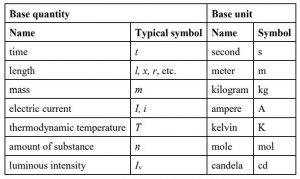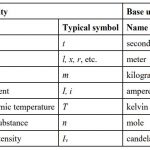The goal of this course is to provide engineering technology students with a comprehensive understanding of the fundamental principles and concepts of physics. Topics covered in this course will include mechanics, thermal physics, waves and optics, electricity and magnetism, and modern physics. The course will also include laboratory experiments that allow students to apply what they have learned in a practical setting and to develop their laboratory skills. By the end of the course, students should have a solid understanding of the underlying physical principles that govern the behavior of the natural world, and be able to apply this knowledge to a wide range of engineering technology applications.
I. Introduction to Physics
A. Basic Physical Units and Quantities
B. Physical Laws and Theories
II. Mechanics
A. Kinematics
B. Dynamics
C. Work, Energy, and Power
D. System of Particles and Rigid Bodies
III. Thermal Physics
A. Temperature and Heat
B. Thermodynamics
C. Heat Transfer
IV. Waves and Optics
A. Wave Motion
B. Sound Waves
C. Electromagnetic Waves
D. Geometrical Optics
V. Electricity and Magnetism
A. Electric Charge and Electric Fields
B. Electric Potential and Electric Circuits
C. Magnetic Fields and Electromagnetic Induction
VI. Modern Physics
A. Relativity
B. Quantum Mechanics
C. Atomic and Nuclear Physics
VII. Laboratory Experiments
A. Laboratory Techniques and Equipment
B. Data Analysis and Reporting
C. Hands-on Physics Experiments


